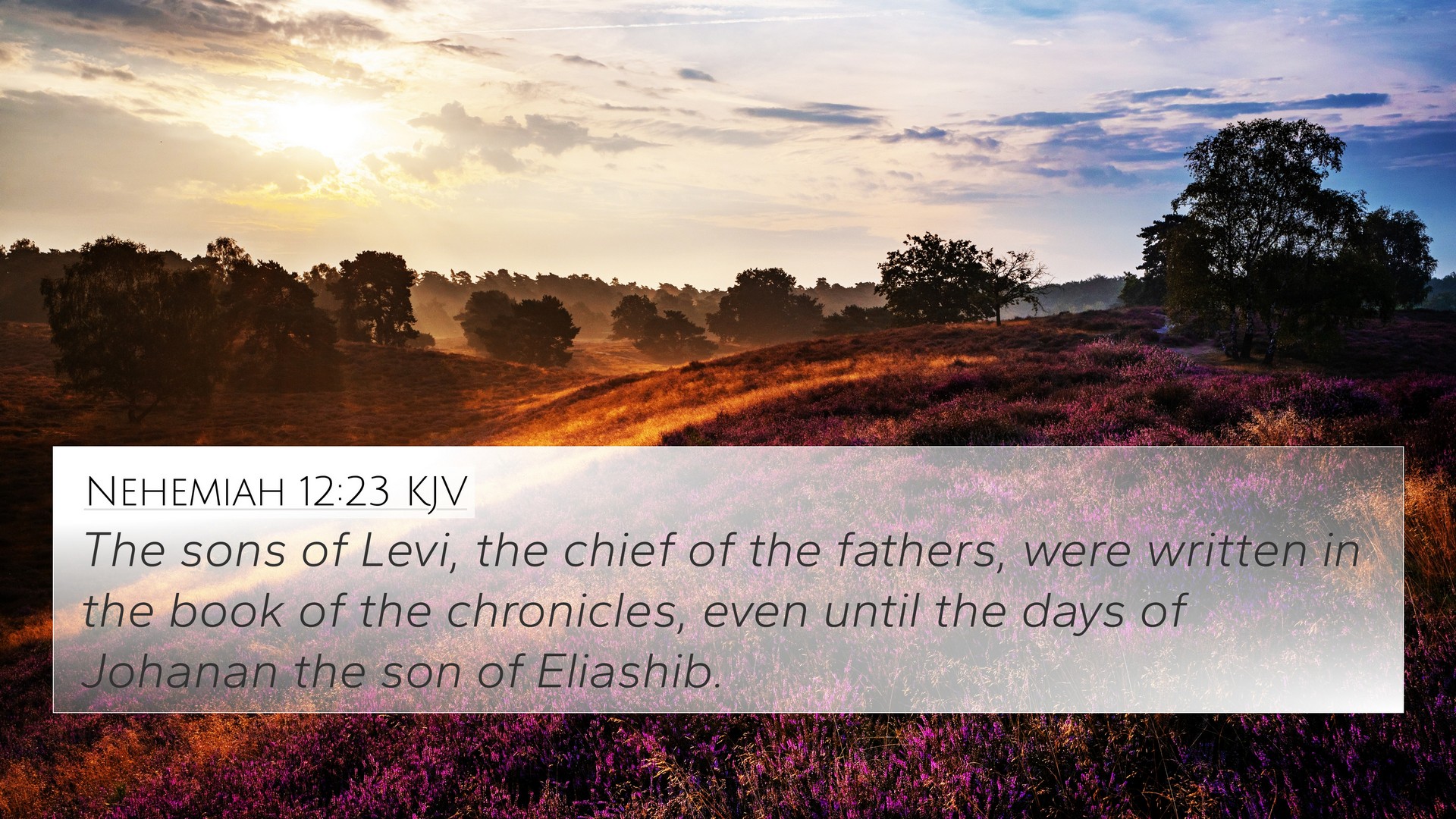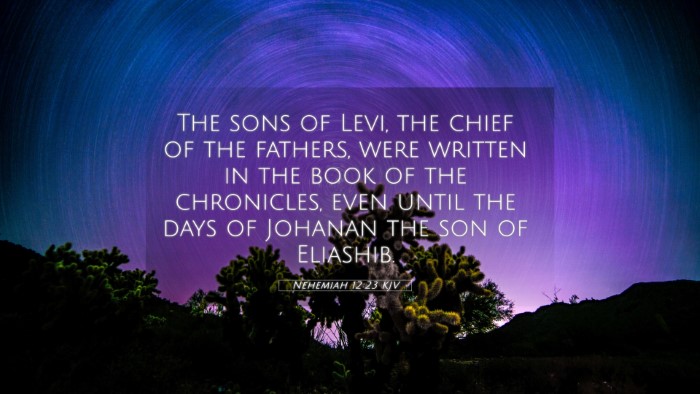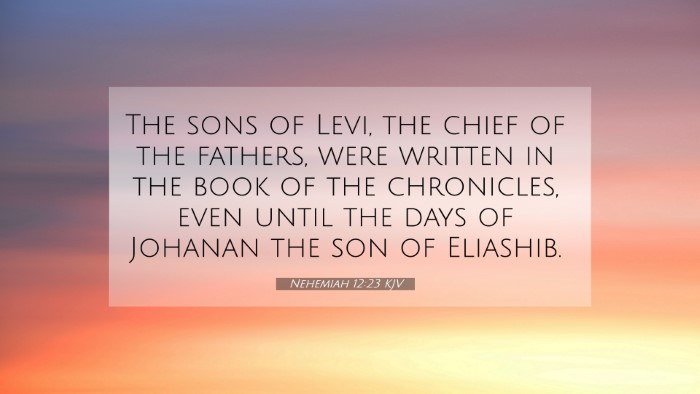Understanding Nehemiah 12:23
Nehemiah 12:23 states, "The sons of Levi, the chief of the fathers, were written in the book of the chronicles, even until the days of Johanan the son of Eliashib." This verse encapsulates the importance of recording lineage and maintaining continuity among the priestly families. Below are insights and interpretations drawn from public domain commentaries by Matthew Henry, Albert Barnes, and Adam Clarke.
Verse Meaning and Significance
This verse serves to affirm the historical and spiritual legacy of the Levites, illustrating God's faithfulness across generations.
- Historical Context: The mention of chronicles highlights the Jewish tradition of meticulous record-keeping, ensuring the preservation of genealogies. This practice reflects God's commitment to His covenant with Israel.
- The Role of the Levites: As religious leaders, the Levites played a pivotal role in worship and temple service. Their continued mention signifies the ongoing importance of their ministry in the community.
Commentaries Breakdown
Matthew Henry's Commentary
Henry emphasizes that the naming of Levitical families serves a dual purpose: it honors their service and asserts their rightful place in God's plan. The detailed genealogical records stand as a testament to God’s providence in preserving a faithful remnant.
Albert Barnes' Notes
Barnes reflects on the significance of these records for the Jewish people, suggesting they serve as a reminder of their heritage and responsibilities. He notes that such details symbolize God's unchanging nature and His promises to those who faithfully serve Him.
Adam Clarke's Commentary
Clarke elaborates on the historical importance of continuity in worship practices, linking the past to the present. He points out that the chronicles' role extends beyond preservation; they serve as a reminder of the vital connection between God’s historical actions and the current community’s spiritual identity.
Cross-Referencing Related Bible Verses
Nehemiah 12:23 is interconnected with several other verses in the Bible, revealing deeper theological insights through thematic connections. Here are some notable cross-references:
- Exodus 6:16-25: Discusses the genealogy of the Levites, establishing their priestly role.
- 1 Chronicles 6:1-2: Further elaborates on the lineage of Levi, affirming the importance of genealogical records.
- Ezra 2:36-39: Mentions the Levites returning from exile, highlighting the restoration of worship and service.
- Numbers 3:6-10: Speaks of the direct responsibilities set upon the Levites in relation to the priesthood.
- Malachi 2:4-7: Discusses the role of priests in teaching and preserving knowledge of God’s law.
- Hebrews 7:11-14: Provides a New Testament reflection on the Levitical priesthood, introducing the concept of Jesus as the eternal High Priest.
- Psalm 78:68-71: Describes God's choice of Levi for spiritual leadership and shepherding His people.
Connecting Themes
This verse and its references reveal integral themes about God's promises, the legacy of faith, and the continuity of worship practices. Analyzing these themes enhances our understanding of how the Bible dialogues across various texts.
Thematic Bible Verse Connections
Through exploring continuities in Scripture:
- Faithfulness of God: The Levites' enduring lineage demonstrates God's continued covenant with His people.
- Spiritual Leadership: The responsibilities outlined for the Levites reflect God's design for order and reverence in worship.
- Preservation of God's Word: The chronicles serve as a reminder of the importance of transmitting God’s message through generations.
Conclusion
In conclusion, Nehemiah 12:23 serves as a powerful reminder of the significance of lineage and faithful service among the Levites. Through cross-referencing with related verses and examining various commentaries, we gain a more profound understanding of its implications and theological dimensions. These insights guide us in our Bible study and deepen our appreciation for the interconnectedness of Scripture.
This verse encourages believers to recognize their own spiritual heritage and to understand the vital connections between Old and New Testament teachings. As we explore the narratives of God's people, we affirm our identity as part of His ongoing story.



